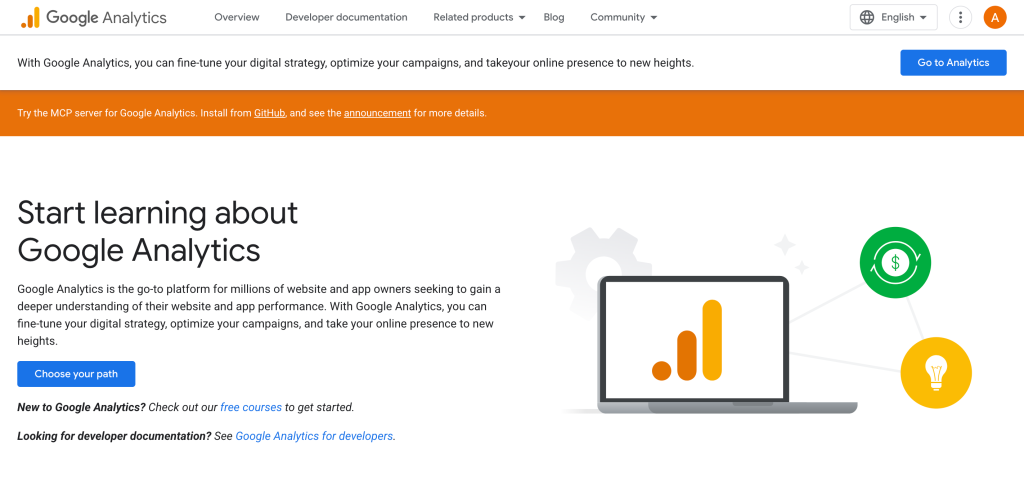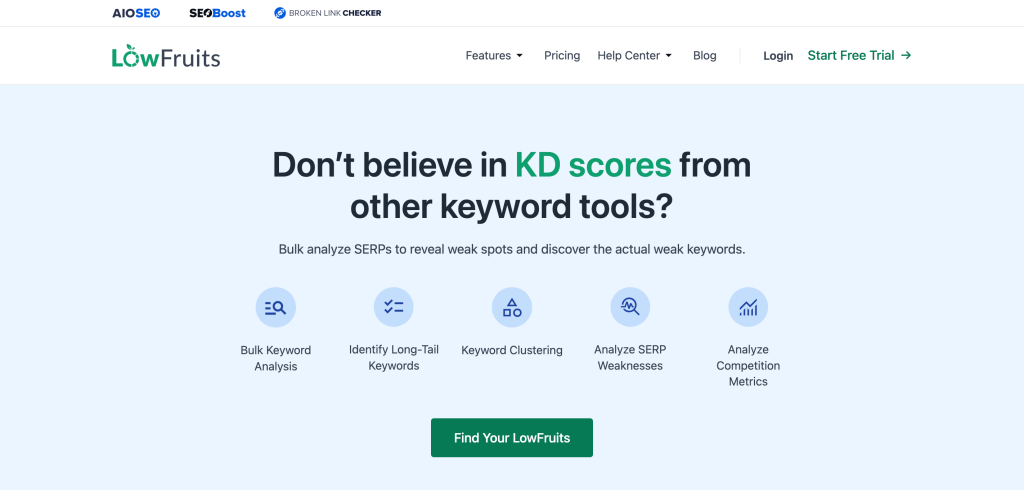Search engine optimisation (SEO) is essential for growing your online presence, driving traffic, and improving your website’s visibility. The right tools can make this process much more efficient and effective. Here’s a list of some of the best SEO tools available today, each offering unique features to help you dominate search rankings.
1. Click Insights
Click Insights tops the list for a reason. It’s a comprehensive SEO platform that helps you analyse your website’s search performance and identify opportunities to boost traffic. With advanced keyword tracking, competitor analysis, AI/LLM share of voice performance and automated reporting, Click Insights makes it easier to stay ahead of the competition.
One of its standout features is its ability to highlight which pages are underperforming and suggest actionable improvements. Whether you’re managing multiple websites or a single blog, Click Insights provides the data you need to make informed SEO decisions and optimise your content strategy.
2. Google Data Studio and Google Analytics

Google Data Studio, paired with Google Analytics, offers a powerful combination for visualising and understanding your website data. Google Analytics tracks user behaviour, traffic sources, and conversion rates, while Data Studio allows you to create customisable, interactive reports that present this data in a clear and engaging way.
These tools help you identify trends and patterns that can inform your SEO strategy. For example, by analysing which pages have high bounce rates or low engagement, you can pinpoint areas that need optimisation. The integration of these tools ensures you always have a data-driven approach to SEO decisions.
3. Semrush

Semrush is a widely recognised SEO tool known for its all-in-one capabilities. It covers everything from keyword research and backlink analysis to site audits and competitive intelligence. Its keyword tracking feature helps you monitor your search rankings over time, while its domain analysis tool allows you to benchmark against competitors.
Additionally, Semrush’s content marketing toolkit provides insights into trending topics and high-performing keywords, making it easier to plan content that resonates with your audience. This versatility makes Semrush ideal for both beginners and seasoned SEO professionals.
4. LowFruits

LowFruits is a lesser-known but incredibly effective tool for finding low-competition keywords. It’s designed to help small and medium-sized websites compete in search results by identifying opportunities that are often overlooked by larger competitors.
By filtering keywords based on difficulty and search volume, LowFruits allows you to focus on high-potential targets that can drive traffic quickly. Its simple interface and targeted approach make it a perfect addition to any SEO toolkit, especially for niche websites looking to grow without massive budgets.
5. Bing Webmaster Tools
While Google dominates the search engine market, Bing still holds a significant share, and Bing Webmaster Tools is essential for optimising your presence on this platform. It provides insights similar to Google Search Console, including indexing status, search performance, and keyword data.
Bing Webmaster Tools also includes diagnostic features that help identify crawl issues and suggest improvements for your website structure. Optimising for Bing can give your site an additional traffic boost and reach audiences who prefer alternative search engines.
Concluding Thoughts
Choosing the right SEO tools is critical for achieving sustained growth and online visibility. Whether you’re looking for comprehensive analysis, keyword insights, or competitive intelligence, these tools, Click Insights, Google Data Studio and Analytics, Semrush, LowFruits, and Bing Webmaster Tools, offer the capabilities needed to elevate your SEO strategy.


